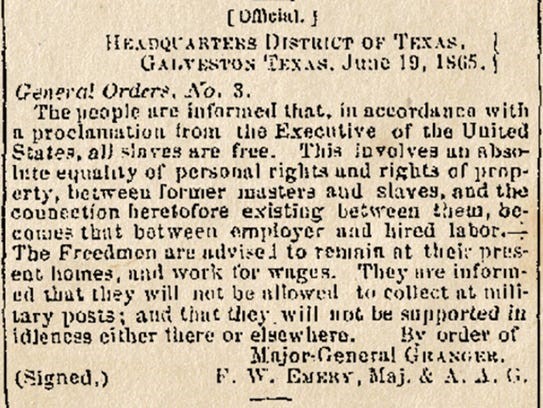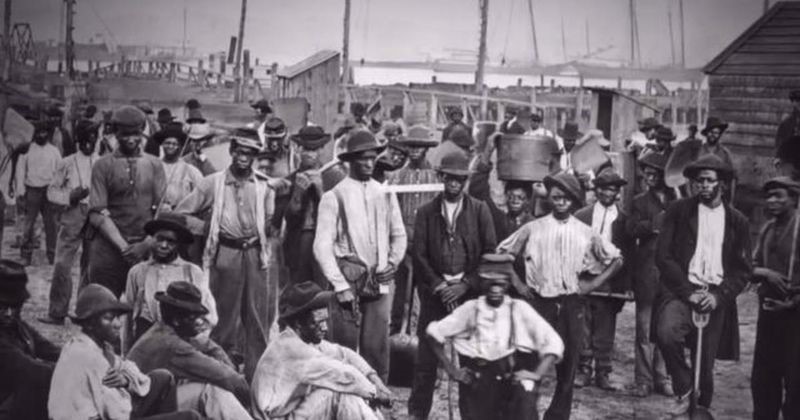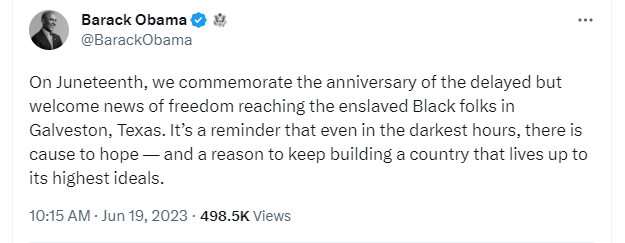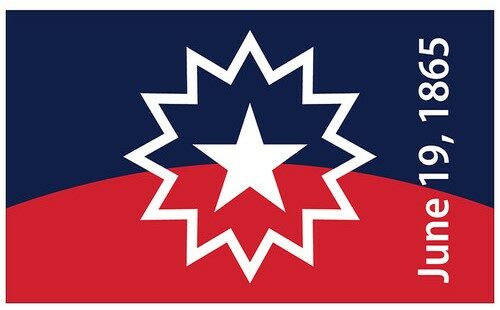Juneteenth is a day of remembrance dedicated to the last enslaved Black Americans, who were freed in Galveston, Texas, on June 19, 1865, more than two and a half years after the Emancipation Proclamation was signed by President Abraham Lincoln.
President Abraham Lincoln issued the Emancipation Proclamation on January 1, 1863, as the nation approached its third year of bloody civil war. The proclamation declared “that all persons held as slaves within the rebellious states are, and henceforward shall be, free.”
Despite this seemingly inclusive wording, the Emancipation Proclamation was limited in many ways. It applied only to states that had seceded from the United States, leaving slavery untouched in the loyal border states. It also expressly exempted parts of the Confederacy (the Southern secessionist states) that had already come under Northern control. Most important, the freedom it promised depended upon a Union Army (United States) military victory.
During the American Civil War, Maryland remained in the Union, though a minority of its citizens – but virtually all of its slaveholders – were sympathetic toward the rebelling Confederate States. Maryland was not included in President Lincoln’s 1863 Emancipation which declared all slaves in Southern Confederate States to be free. The following year, however, Maryland held a constitutional convention and a new state constitution was passed on November 1, 1864, that prohibited the practice of slavery. The right to vote was extended to non-white males in 1867 but not to women until 1920 by ratification of a national constitutional amendment.
It was not until January 31, 1865, and ratified on December 6, 1865, that Congress passed the 13th amendment abolishing slavery in the United States and stating: “Neither slavery nor involuntary servitude, except as a punishment for crime whereof the party shall have been duly convicted, shall exist within the United States, or any place subject to their jurisdiction.”

The federal holiday Juneteenth commemorates June 19, 1865 and the proclamation by Major General Gordon Granger of the Union Army who arrived in Galveston, Texas, and announced that in accordance with a proclamation from the Executive of the United States, all slaves are free. The freedmen were advised to remain quietly at their present homes and work for wages.
Some historians blame the lapse in time between Lincoln’s Emancipation Proclamation and Major General Granger’s announcement on poor communication in that era, while others believe Texan slave owners purposely withheld the information. In any event, the last 250,000 legally enslaved Blacks were emancipated.

On June 17, 2021, President Joe Biden signed into law the Juneteenth National Independence Day Act making Juneteenth a federal holiday. It was the first federal holiday to be added to the calendar since Martin Luther King Jr. Day in 1983.
Although Texas recognized Juneteenth as a holiday in 1980, it has taken decades for other states to pass legislation acknowledging the significance of the day. Today, all states and the District of Columbia have laws recognizing Juneteenth as a holiday or day of observance.


